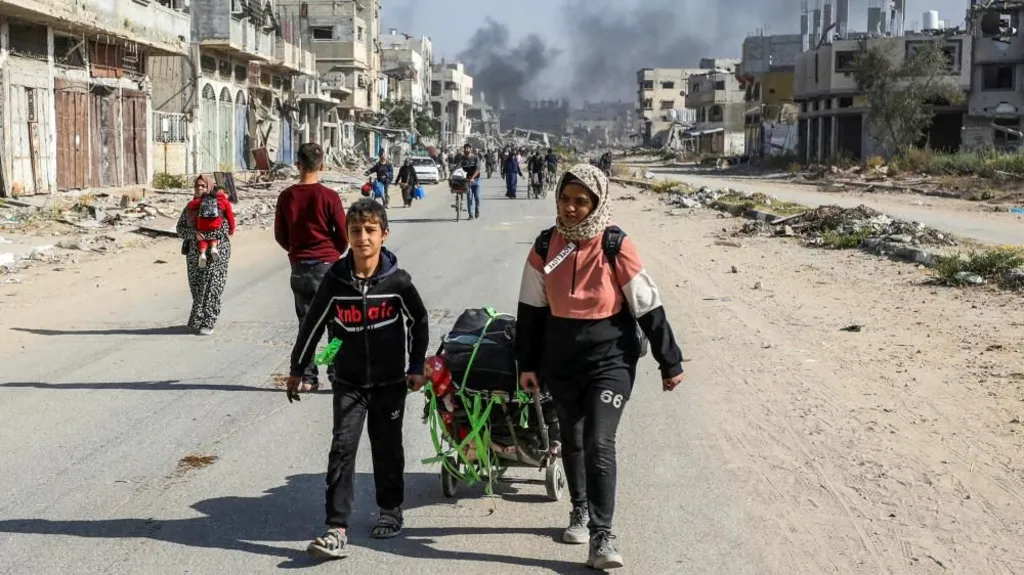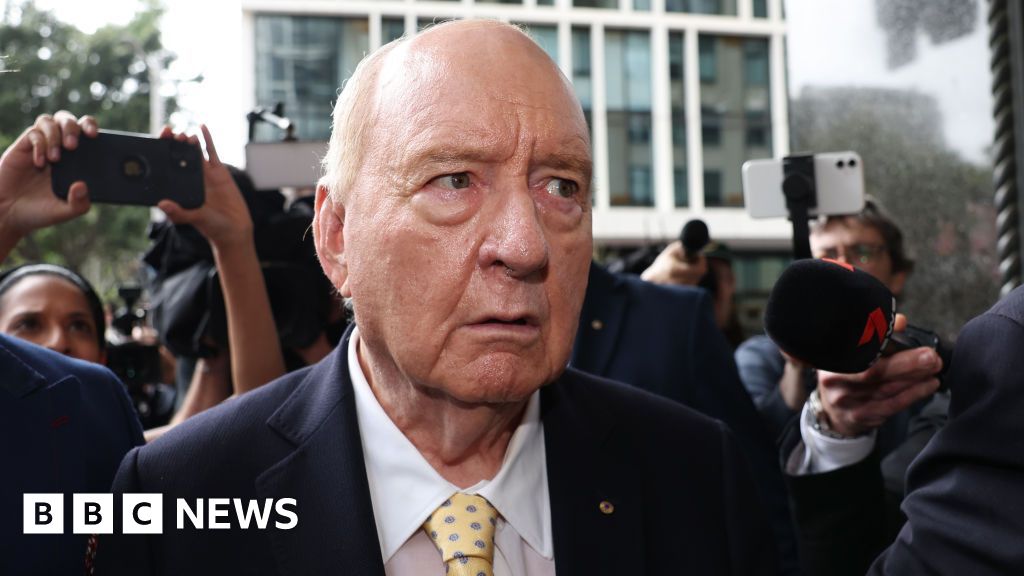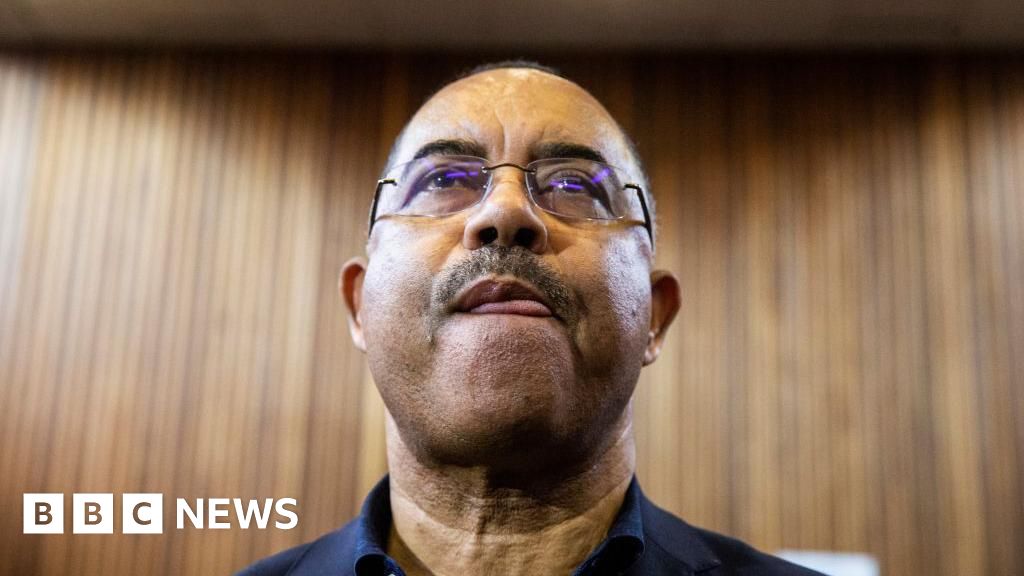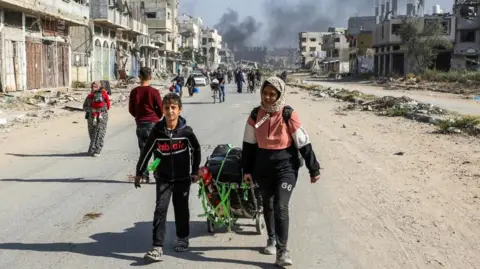 Reuters
ReutersIsrael and Hamas are thought to be close to agreeing a deal which could halt the war in Gaza and see the release of Israeli hostages and Palestinian prisoners.
The BBC’s US partner CBS has been told by Arab, US and Israeli officials that an agreement has been reached in principle and, if all goes well, will be finalised by Israel and Hamas this week.
It would be the most dramatic breakthrough in 15 months of war, which began when the armed Palestinian group Hamas attacked Israel in October 2023.
What could be in a ceasefire deal between Israel and Hamas?
It is hoped that a ceasefire deal will mean an agreement to stop the war which has been raging in Gaza.
It is also expected to see an exchange of hostages and prisoners.
Hamas seized 251 hostages when it attacked Israel in October 2023. It is still holding 94 captive, although Israel believes that only 60 are still alive.
Israel is expected to release about 1,000 Palestinian prisoners, some jailed for years, in return for the hostages.
How would the ceasefire work?
This ceasefire is expected to happen in three stages, once a deal is announced.
Details are still being ironed out. Until an agreement is finalised, it is subject to change.
First stage
Israeli government spokesperson David Mencer said that 33 hostages – expected to be women, children, the elderly and the sick or injured – would be exchanged for Palestinian prisoners. Mr Mencer said that most but not all of the 33 hostages are thought to still be alive.
Three hostages would be released straight away, a Palestinian official told the BBC, with the rest of the exchange taking place over six weeks.
During this stage, Israeli troops would also begin pulling out of populated areas in Gaza.
The Palestinian official said detailed negotiations for the second and third stages would begin on the 16th day of the ceasefire.
Second stage
In the second stage, the remaining hostages – soldiers and reservists – would be released, in return for another release of Palestinian prisoners.
Of the 1,000 Palestinian prisoners Israel is thought to have agreed to release, about 190 are serving sentences of 15 years or more. An Israeli official told the BBC that those convicted of murder would not be released into the occupied West Bank.
During this stage, Israel would also allow displaced people now in the south of Gaza to return to the north.
Almost all of Gaza’s 2.3 million population have had to leave their homes because of the fighting.
Third stage
The third and final stage would involve the reconstruction of Gaza – something which could take years.
The Israeli official said Israeli forces would remain in a buffer, or security, zone inside Gaza during any ceasefire.
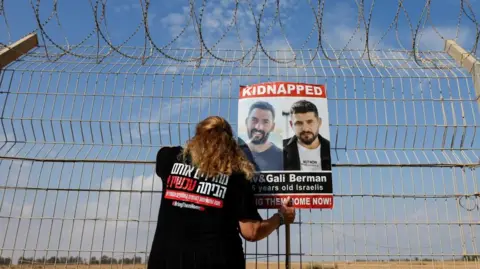 Reuters
ReutersWhat are the unanswered questions about the deal?
Getting to this point has taken months of painstaking indirect negotiations, not least because Israel and Hamas completely distrust each other.
Hamas wanted a complete end to the war before it would release the hostages, something which was unacceptable to Israel.
The ceasefire will in effect pause the war while its terms are carried out.
However, it is unclear whether it will mean the war is over for good.
One of Israel’s key war aims has been to destroy Hamas’s military and governing capabilities. Although Israel has severely damaged it, Hamas still has some capacity to operate and regroup.
It is also unclear which hostages are alive or dead or whether Hamas knows the whereabouts of all those who remain unaccounted for.
For its part, Hamas has demanded the release of some prisoners which Israel says it will not free. This is believed to include those who were involved in the 7 October attacks.
It is also not known whether Israel will agree to pull out of the buffer zone by a certain date, or whether its presence there will be open-ended.
Any ceasefire is likely to be fragile.
Ceasefires between Israel and Hamas which have halted previous wars have been shaken by skirmishes and eventually broken down.
The timetable and complexity of this ceasefire means even a small incident could turn into a major threat.
What happened on 7 October 2023 and what has happened in Gaza?
Hundreds of Hamas-led gunmen launched an unprecedented attack on southern Israel, bursting through the border fence and targeting communities, police stations and army bases.
About 1,200 people were killed and more than 250 hostages were taken back to Gaza. Hamas also fired thousands of rockets into Israel.
Israel responded with a massive military campaign, first by air and then a ground invasion. Since then, Israel has attacked targets across Gaza by land, sea and air, while Hamas has attacked Israel with rockets.
Israel’s offensive has devastated Gaza and led to severe food shortages, with aid struggling to reach those most in need. More than 46,600 people – the majority of them civilians – have been killed by Israel’s attacks, according to Gaza’s Hamas-run health ministry.
